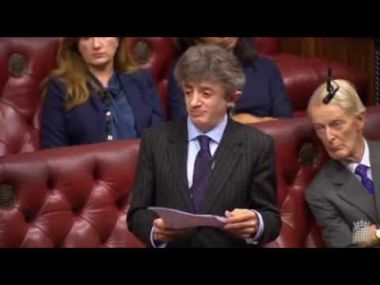This Could Be The Biggest Move Against Abortion In 50 Years
The biggest cut back in abortion in nearly half a century will be debated in the House of Lords on Friday.
Lord Shinkwin's Abortion (Disability Equality) Bill would remove two major clauses of the original Abortion Act 1967 and in doing so be the largest claw back of abortion provision in the UK since it was first legalised.

Lord Shinkwin is a lifelong campaigner for disability equality. A conservative life peer, he used the 2015 Queen's Speech debate to introduce the bill saying a "one-nation society is one that does not discriminate on account of disability—a society in which disability equality is a consistent reality."
He added that "unbelievably" before birth "disability carries a death sentence". Referring to the 1967 Abortion Act which allows terminations on the grounds of disability he said: "Discrimination on the grounds of disability after birth is outlawed. Yet today legal and lethal discrimination on the grounds of disability is allowed up to birth by law."
Lord Shinkwin's bill would mean an abortion could not be allowed simply because the foetus had disabilities. The current law allows a termination at any point if there is "a substantial risk that if the child were born it would suffer from such physical or mental abnormalities as to be seriously handicapped".
It would also remove what he described as an "obvious discrimination" in the 1967 Act. The current law allows abortions up to 24 weeks for a healthy foetus but right up to birth if they have a disability.
"For as long as this discrimination is allowed by law and remains on the statute book, how can I, as a severely disabled person, reasonably be expected to regard myself as an equal?," Lord Shinkwin told peers in July.
Addressing opponents he said: "I respectfully invite them to imagine the outcry if the same were applied to skin colour or sexual orientation. Such discrimination would rightly be regarded as outrageous."
Last year 3,213 abortions were granted on the grounds of disability in England and Wales – an increase from 2,290 in 2010. Of these, 689 were for Down's syndrome.
The bill comes at the same time as actress Sally Phillips' protest against a new screening programme for foetuses with Down's. The "Don't Screen Me Out" move is timed at the same time as the "We're All Equal" campaign to back the bill. "The law is promoting inequality", the campaign's website read and criticised it for being "completely inconsistent".











